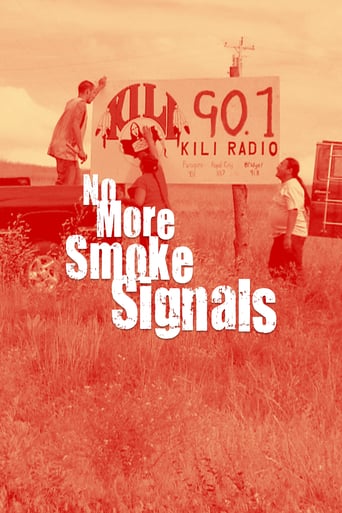



Some things I liked some I did not.
recommended
Absolutely brilliant
It’s sentimental, ridiculously long and only occasionally funny
View MoreThe documentary is about the Kili Radio Station in Porcupine, in The Pine Ridge Indian Reservation (SD). Several important Native Americans (and Whites), that have influenced Lakota culture over the years, are given a voice. Kili brings the Lakota and other Native Americans closer together: Kili brings people together for a Native X-Factor, it records local sports games of the young Lakota and brings information to people who really need it. On further point, the movie focuses on political issues that concern the Lakota nowadays.It is a great documentary, but rather disappointing are the consequences: Although winning an award for best movie at ceremonies, the Lakota NEVER saw any of the money made by the movie. It seems that nobody cared about, what it actually tried to represent. Also, it wasn't really shown outside Europe (that is to say, Switzerland). Biased, then I couldn't give a perfect 10/10.
View MoreI saw the film at the Indian Museum in New York City. The producer Fanny Braeuning and Roxanne Two Bulls were present, spoke about the film and themselves and answered questions. Ms. Two Bulls, whose story is recounted in the film, proved to be a personable, terrific spokesperson for her people.The film combines with great skill the story and role of KILI radio on the Pine Ridge Reservation (which is the size of Connecticut and has no newspaper and no movie theater) and contemporary reportage about, and the consequences of, the armed stand-off between members of the American Indian Movement and federal troops in 1973. Its political and social messages are unmistakable.The film resonated strongly with the audience, judging by the many questions and comments from audience members, several of whom identified themselves as non-American. This film is an effective teaching tool and should be shown in school and every public library.
View MoreShown here as part of a Westerns film festival (I'm an American living in a small Swiss town), I expected what the printed summary said: A documentary on the Lakota people in SD, and how their radio station KILI is a community focal point. I love South Dakota landscapes.What I got was a fascinating portrait of life for present-day Lakota on their Pine Ridge reservation, an illuminating account of their struggles since Custer's time to carve out a decent life for themselves, and in fact, a dramatic account of conflict between them and "their" US government, that grew more riveting as the film progressed. Also, a great story, warm and humorous, about achieving and maintaining the community radio station. And, plenty of the magnificent scenery I came for!This is a movie that every American should see. I don't know what other films exist on the subject, but it's certainly ironic that it took a Swiss team to make such an insightful and sensitive piece about an American people. It presents a struggle that far too few Americans know much about. The ignorance and disrespect in which non-native Americans hold the natives is an on-going disgrace, and this film seeks to shine a needed light. Thankfully the director avoids the harsh glare, in favor of a lower-key approach that carries us along alternating between daily-life vignettes and expositions of the bigger struggle. I left marveling that these people carry out their lives and present their story with a dignity unwarranted by the depressing reservation conditions and history. It becomes clear that that history remains very much alive, and unfinished, in their souls.I have no idea how available this film is/will be in the US, but: Seek it out and watch!
View More